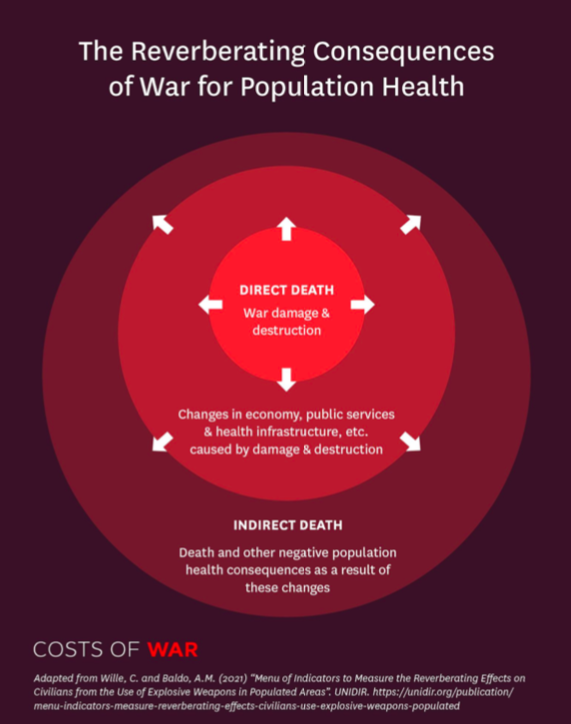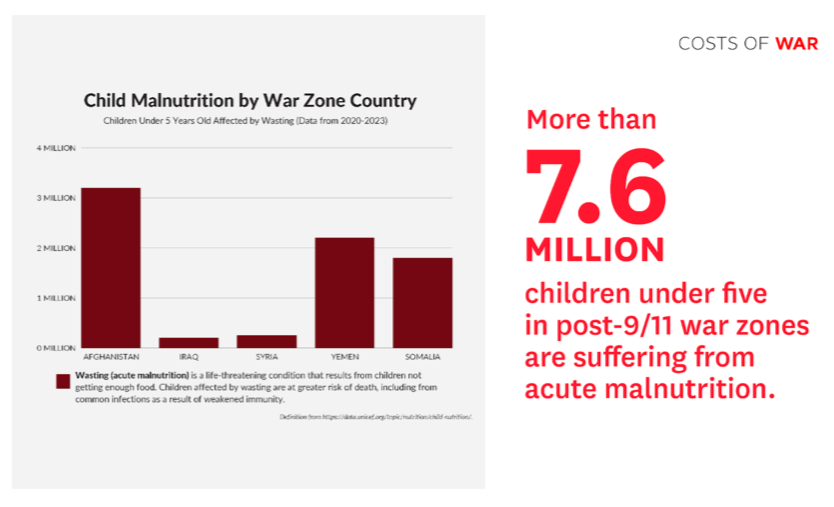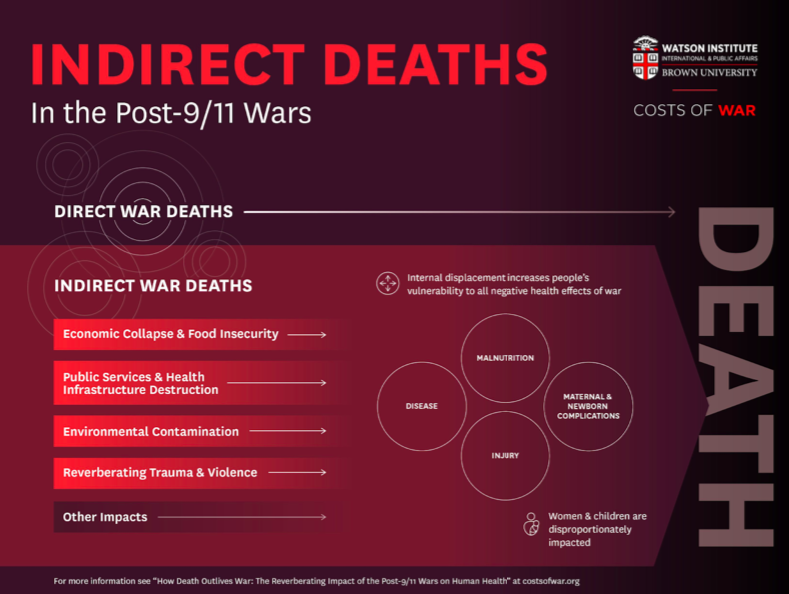How Death Outlives War: The Reverberating Impact of the Post-9/11 Wars on Human Health
Executive Summary

All Global Research articles can be read in 51 languages by activating the Translate Website button below the author’s name.
To receive Global Research’s Daily Newsletter (selected articles), click here.
Click the share button above to email/forward this article to your friends and colleagues. Follow us on Instagram and Twitter and subscribe to our Telegram Channel. Feel free to repost and share widely Global Research articles.
***
The bottom line: In addition to the many, many people who have died in combat during the post-9/11 wars, more still have died in these same warzones from the indirect, reverberating effects of war.
An important note: This research sheds new light on the devastating indirect toll of war on human health in Afghanistan, Iraq, Pakistan, Syria, Yemen, Libya and Somalia. These countries have experienced the most violent wars in which the U.S. government has been involved in the name of counterterrorism since 2001, though many warring parties and many intensifying factors have contributed to these deaths and the report does not attribute direct responsibility to any single combatant, cause, or time period. Additionally, the report points out that the true impacts are so vast and complex that they are unquantiiable and thus does not generate a precise mortality igure, but instead provides a reasonable and conservative estimate.
1. At least 4.5 million people have died in the post-9/11 war zones
There are many reverberating consequences of the post-9/11 wars that have led to indirect deaths, and they often overlap, but four under-appreciated primary ones that this study delineates are:
- Economic collapse, loss of livelihood, and food insecurity;
- Destruction of public services and health infrastructure;
- Environmental contamination; and
- Reverberating trauma and violence.
Other compounding factors like natural disasters, climate chaos, and forced displacement intensify these effects. Again, while this research does not ascribe blame to any single warring party or factor, and neither does it suggest the full death count is quantiiable, a reasonable and conservative estimate suggests that at least 4.5 million people have died in the major post-9/11 war zones.
2. Wars often kill far more people indirectly than in direct combat, particularly young children
War’s destruction often includes environmental contamination and collapsed economies, public services, and infrastructure. These consequences in turn can lead to mass impoverishment, loss of access to food and clean water, loss of healthcare and medicine, and other essential pathways to preserving health and life. Children under age ive are particularly vulnerable, as demonstrated by high rates of child malnutrition in warzones.
Cumulatively, the report’s calculation is that more than 7.6 million children under ive are suffering from acute malnutrition, also known as wasting, in Afghanistan, Iraq, Syria, Yemen, and Somalia.
3. The reverberating impacts of war affect some more intensely than others.
Men are more likely to die in combat, but women and children are more often killed indirectly. Those who live in rural areas are
especially vulnerable when public services, especially healthcare, are disrupted or destroyed. And, with or without war, people who suffer from societal injustices due to their poverty, gender, race, ethnicity, and/or colonial legacies have a higher risk of death. Women in particular suffer from gender-based violence, worsened in wartime. The post-9/11 wars have occurred in countries whose populations are largely Black and brown, and are often waged by countries with histories of white supremacism and Islamophobia.
To read the full study click here
here. Formoreinformation,[email protected].
*
Note to readers: Please click the share button above. Follow us on Instagram and Twitter and subscribe to our Telegram Channel. Feel free to repost and share widely Global Research articles.
Featured image is from Countercurrents




